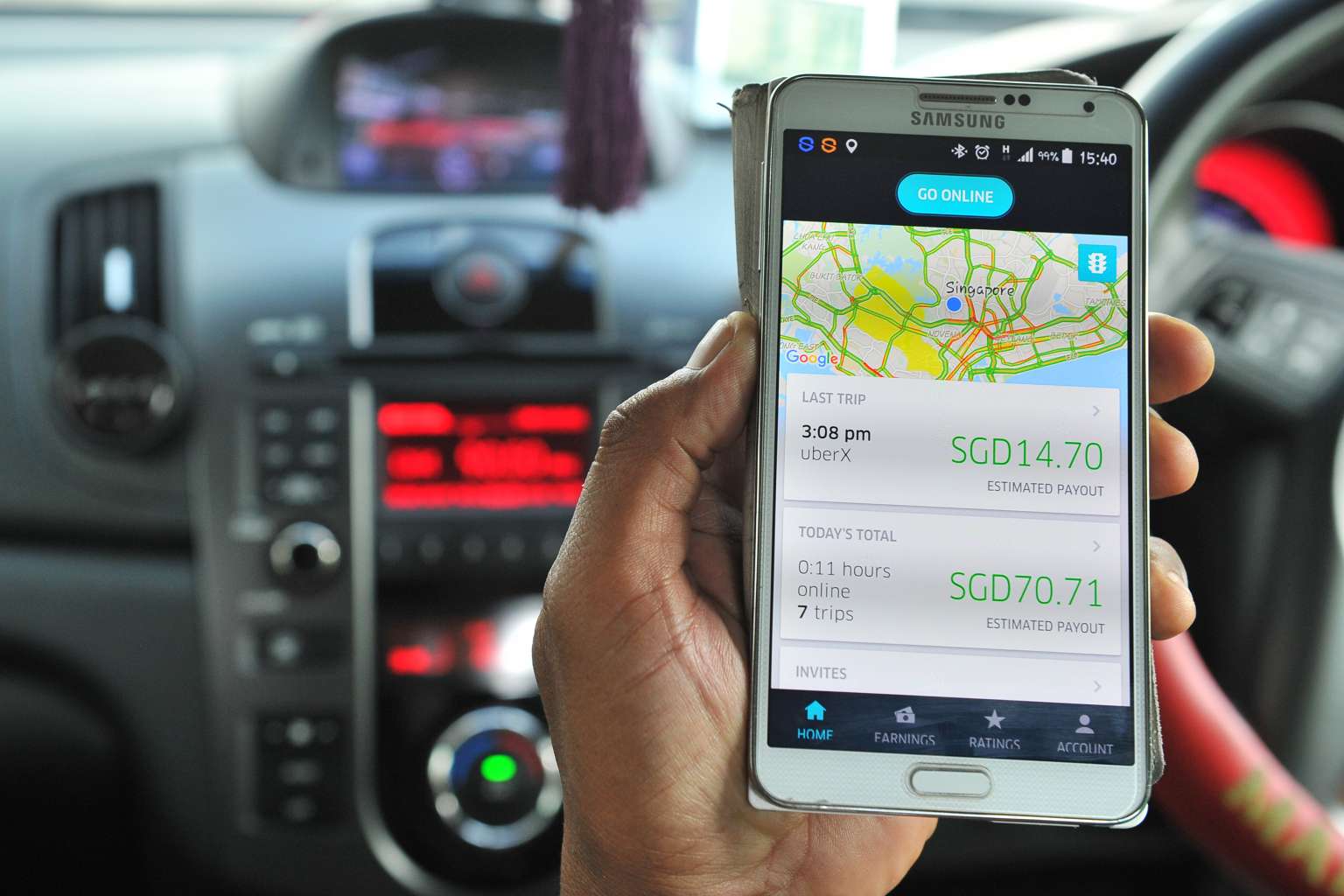Uber gives cash payment a test drive
Private car hire firm launches pilot scheme in Singapore as it competes with Grab
Sign up now: Get ST's newsletters delivered to your inbox

Singapore is the first "developed" city where Uber will experiment with cash payments.
PHOTO: ST FILE
Private car hire service Uber will launch a pilot scheme today giving customers an option to pay in cash- a departure from its cashless-only policy in Singapore.
The company operates in more than 400 cities around the world but accepts cash in only 40 or so of them. It says Singapore is the first "developed" city where Uber will experiment with cash payments.
The trial will involve a "large proportion of new and existing customers", the San-Francisco-based firm said, though it did not reveal how many.
Uber's move ups the ante in the competition for drivers and customers with its rival transport app, Grab.
Grab offers customers both cash and cashless options, such as credit card, for its taxi bookings and chauffeur hire service, called GrabCar.
Uber Singapore general manager Warren Tseng told The Straits Times: "Cash transactions make up over 30 per cent of all transactions in the island-state, so introducing cash payments as an alternative option for Singaporeans makes sense (for Uber)."
He said that in developing markets where cash payment is available - such as Jakarta and Hanoi - the Uber service has become "more accessible" to new customers. In those places, credit cards may not be so easily attainable, he said.
Uber has also found that people who pay in cash tend to take longer trips to underserved areas, he said.
Mr Tseng added that said cash comes in useful for drivers who have to deal with day-to-day expenses like petrol.
On Sunday, Uber sent a text message informing drivers of the pilot scheme. They were asked to watch a training video on how and when to collect fares in cash.
Fares are to be rounded down to the nearest 10 cents, and only the fare amount calculated by the app is to be collected.
Since Uber launched in Singapore in 2013, its selling point has been its convenience, with fares paid remotely by card instead of customers having to fumble for cash.
Its latest move is seen as a way to win more passengers and drivers.
Private car hire drivers who work for both Uber and Grab said that between 60 per cent and 70 per cent of the latter's customers pay in cash as they hail from a more blue-collar background and do not have credit cards.
Asked about the proportion of cash transactions it receives, Grab declined to reveal figures, only saying that its "numbers do show that people still prefer cash".
Uber and GrabCar driver Chin T.T., 35, said: "Some passengers tell me they do not want to upload their credit card details for security reasons, for example, if the servers are hacked and the details are leaked."
While drivers are free to take bookings from both companies, some said GrabCar jobs with cash payments help their daily cash flow.
Mr Sam Samioen Moksam, 51, said he is paid electronically by Uber every week through the company he rents his car from.
However, if GrabCar customers pay him in cash, it can help with his daily petrol bills of up to $60.
Teacher George Bates, 24, said he will continue to pay by credit card for his Uber and GrabCar rides for "convenience".
Asked about Uber's latest move, Mr Lim Kell Jay, head of Grab Singapore, said: "Our flexible and hyperlocal payments approach enables the Grab platform to cater to the average Singaporean user, and other industry players who choose not to adapt to local habits are finally trying to catch up to cash."


